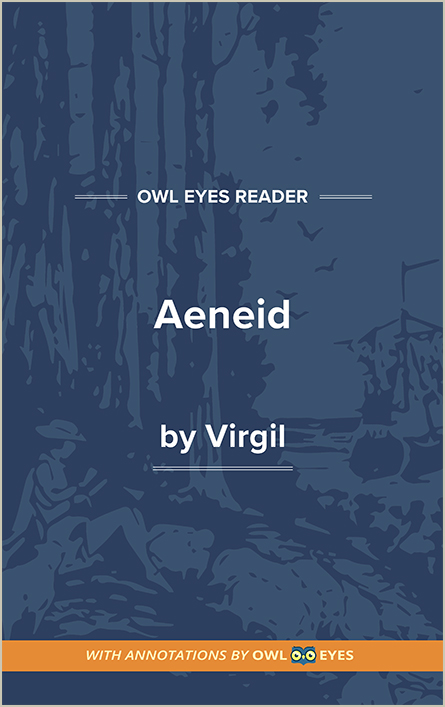Study Guide
Analysis Pages
Summary
It is impossible to gauge the seriousness of the dying Vergil’s request that his Aeneid be burned upon his death. Despite the dramatic command of Augustus to spare it from the flames, it is difficult to imagine that any of Vergil’s contemporaries would have taken it upon themselves to destroy what promised to be the most extraordinary poem ever written in Latin, and that is precisely what those who knew the work in progress realized it to be. It is more likely that Vergil’s request stemmed from the almost manic pessimism that one notes as counterpoint in both the Eclogues and Georgics. Such resolution through a minor key produces great art, however, and Vergil knew that no poetic form yields more easily to an indeterminate conclusion than epic. The Aeneid, despite the difficulties inherent in its composition, thus offered Vergil the surest possibility for ultimate development of his talent.
In one sense, the Aeneid obviously depends upon Homer’s Iliad and Odyssey for its very creation. Echoes and lines parallel to those of Homer abound within it. Nevertheless, Vergil’s purpose and the nature of the verse itself are altogether different, for Vergil’s is urban poetry reflecting the Trojan War myths from a Trojan (and consequently Roman, rather than Greek) point of view. Rather than conceal his use of Homer, Vergil’s use of the Homeric legacy supports a major part of his thesis: that the present draws from the past and that the quality of what was determines the worth of what is.
Typical Vergilian reciprocity appears in the structure of the Aeneid. Its first six books are effectively an Odyssean series of adventures that take Aeneas and the Trojans from their destroyed city to Dido’s North African city of Carthage and ultimately to the Underworld’s Italian entrance at Cumae, near Naples. Aeneid 1 to 6 are Odyssean only in the sense that the adventures externally parallel those of Odysseus. Aeneas, unlike Odysseus, has responsibility for the collective destiny of his nation, and Vergil consistently distinguishes between his hero’s personal preference and what fatum (fate) requires him to do. Hence, Aeneas must flee Troy, though he would have preferred to die there. Fate, through the instrumentality of the storm conjured by joint request of Juno (to delay fatum) and Aeneas’s mother, Venus (to provide rest for her son), casts Aeneas upon Dido’s shore. Venus mercilessly causes the flame of passion to grow in Dido, using the young queen as an instrument to ensure that Aeneas may pursue his destiny to found an Italian Troy. The flames that destroyed Troy thus resolve themselves into the flames of passion that ultimately cause Dido’s suicide and find final expression in the flames of her funeral pyre. Again, Aeneas must lay aside his obligations toward Dido for the larger obligation that he owes the Trojan people.
Fatum thus governs all: the furor (anger) that Aeneas must direct at those who would impede founding of a new Troy at Lavinium in Italy; labor (work), the struggle to escape and reach the site of the new city; dolor (grief), the suffering that requires decisions for the collective well-being; and pietas (piety), the humility needed to accept what fate decrees. All of these elements bring Aeneas to his Underworld meeting with the shade of his father Anchises in Aeneid 6. It is there that Aeneas beholds a procession of as yet unborn heroes important to the destiny of a city to rise in the remote future. Aeneas knows nothing of Rome and no more of the heroes important to its history, yet he knows that what he witnesses is in some way important. Augustus himself appears among these unborn heroes, and his connection with Aeneas (if ever doubted) becomes explicit in this scene.
Aeneid 7 to 12 looks toward Trojan establishment of Lavinium, the city that must rise if Rome itself is ever to rise. These are the Iliadic books, since they describe a second Trojan War with the Trojans cast as invaders of the Italian city on the site fated for...
(The entire page is 1,244 words.)
Owl Eyes subscribers get unlimited access to our expert annotations, analyses, and study guides on your favorite texts. Master the classics for less than $5/month!

